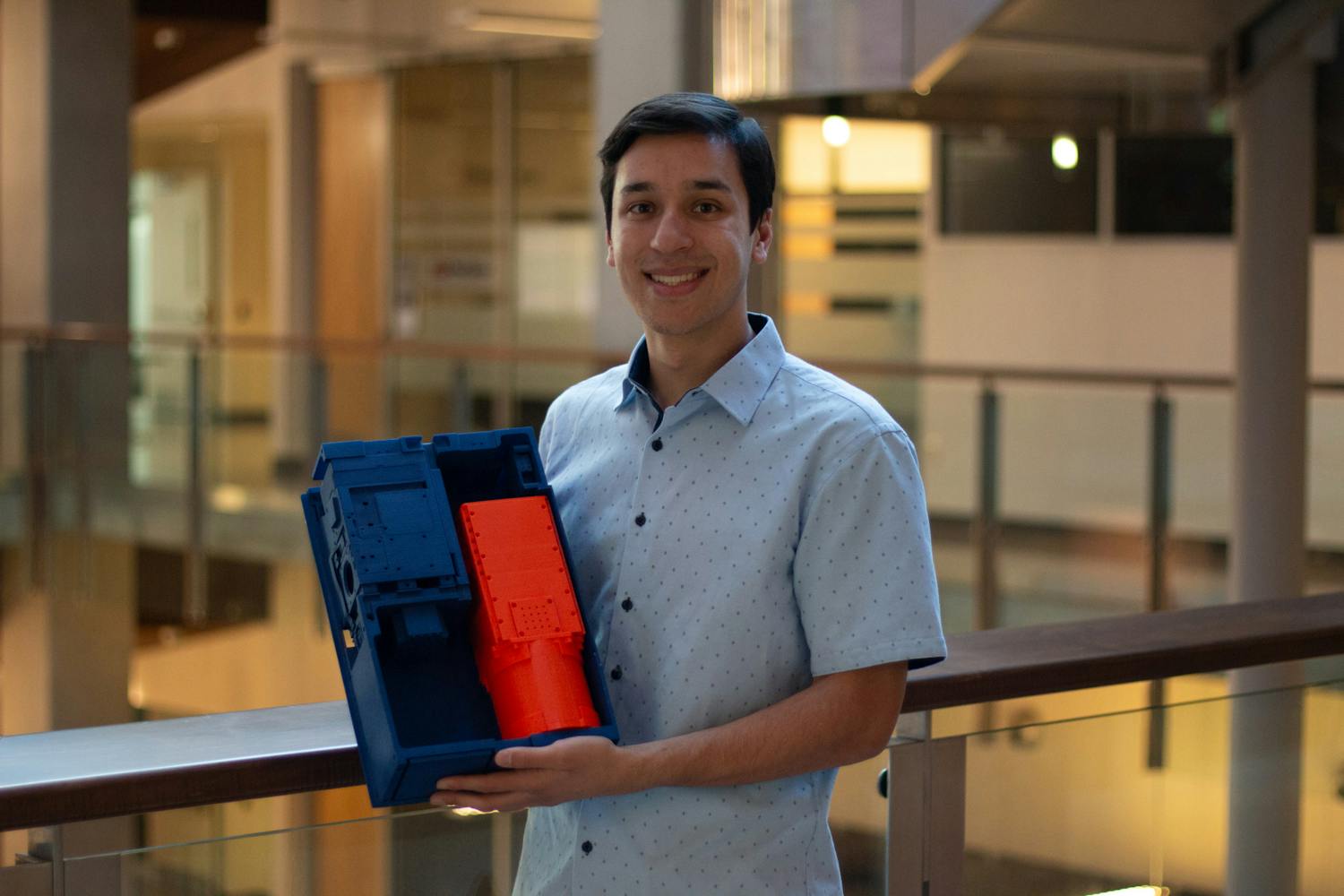ASU is working to assist Arizona medical workers facing the new coronavirus by bringing university and business resources together through an online network aimed at producing and tracking personal protective equipment.
The new PPE Response Network, led by ASU's Luminosity Lab, is connecting health care organizations, businesses and universities to provide access to resources like 3D printers and sewing machines to make personal protective equipment, according to a University press release.
The network will help volunteers who are creating equipment like face shields, medical gowns and nasal swabs identify where supplies need to go by working with local health care groups and tracking the items from start to finish.
“Our goal here is to build a cohesive tool that Arizona’s community can use around the rapid development of personal protective equipment,” said Mark Naufel, executive director of ASU’s Luminosity Lab, in the press release.
The network seeks to unite community resources to "print, sterilize and deliver personal protective equipment (PPE) and other high demand items for those of the front lines of the coronavirus response," according to its website.
All equipment offered will be "items whose designs are validated as effective." The team is also developing a prototype of a 3D-printable N95 face mask.
So far, the PPE Response Network has compiled the needs of a few Arizona health organizations: Banner Health, Equality Health, Dignity Health and Arizona Academy of Family Physicians, among others, the press release said. While the network has worked with larger organizations so far, the team is hoping to connect health care providers of all sizes.
Outside of the portal, hundreds of workers in the ASU community have contributed remotely to produce face shields that are being used by ASU health services and medical facilities in the Valley.
"I’m incredibly proud of the way our Luminosity students have stepped up to this global grand challenge — with admirable speed — to develop innovative ways of addressing pandemic-related needs, not just for our state, but to be shared throughout the nation,” said Sethuraman Panchanathan, executive vice president of Knowledge Enterprise and chief research and innovation officer at ASU, in the press release.
This personal protective equipment initiative is the latest of ASU’s efforts to fight COVID-19. Other efforts include expanding testing for health care providers and first responders as well as other essential workers.
According to the press release, the network, found at pperesponsenetwork.asu.edu, will work this way:
- Medical providers in Arizona will register on the site, be verified by ASU as legitimate and then list what equipment they need, how much and when. Providers can be hospitals, clinics, nursing homes or other entities, such as a Native American community.
- Volunteer producers register on the site, listing what equipment they have, such as 3D printers or laser cutters. They see what items are needed and then pledge to create a certain amount. For example, one person with a 3D printer might promise to produce 10 face shields in a week. Producers can use the more than 120 3D printers at ASU labs, or various small businesses, nonprofits or individuals in the community. Organizations that have the means and equipment to sterilize PPE can also register as processors.
- Then, one of two things happens. If the provider has the ability to sterilize items, such as at a large hospital, the gear is shipped directly there. If not, the items are shipped to a processor to be sterilized and then on to the provider.
- Once the items are at the medical provider, the staff there verifies each item and indicates on the site that the items are received, sterilized and in use.
ASU is not the only university working to combat COVID-19 in Arizona. UA is creating 250,000 antibody tests that will identify people with COVID-19, and azcentral reported that the project may be "one of the largest-scale antibody testing projects in the country, if not the largest."
Reach the reporters at adunn11@asu.edu and ajhowar6@asu.edu and follow @adrienne_dunn and @andrew_howard4 on Twitter.
Like The State Press on Facebook and follow @statepress on Twitter.




